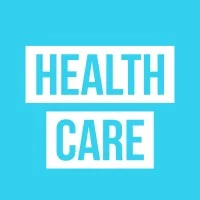The Non-Medical Aspects of Healthcare
Healthcare is the provision of health care and services for the treatment of diseases and other impairments. This includes the diagnosis, prevention, cure and amelioration of illness and injury. It also includes allied health fields, which help in improving or maintaining a person’s health. The most important aspect of healthcare is the prevention of diseases and injuries. However, there are many facets to healthcare that are not always considered medically related. Here are some examples.
The production and consumption of healthcare services are marked by their inherent uncertainty. The demand for healthcare is highly price-inelastic, and the market is characterized by a large amount of government intervention and regulation. While the supply of these services is unlimited, the demand for these services is limited. The result is a situation of asymmetric information. In addition, providers and consumers have wide asymmetric information, and there is little room for innovation.

The resources and settings of healthcare providers and systems are vital. In addition to hospitals and physicians, these organizations provide patient-centered care. But the resources available to them vary widely. As a result, the provision of healthcare services depends on the quality and availability of each resource. The number of health insurance companies, health benefit managers, pharmaceutical companies, group purchasing organizations, and corporate healthcare systems has increased dramatically. And the quality of these services is a crucial issue.
Providing more resources to healthcare systems has been one way to overcome the current problems of the health system. While increasing costs have led to an increase in costs, a larger percentage of resources is needed for research and development to address the challenges. In many cases, healthcare resources are underused, resulting in a decline in quality of care. In addition, the growing need for health services has resulted in a shortage of staff and limited budgets. Ultimately, the ability of the health system to meet the expectations of the public has been put into question.
The availability of health resources in an area also affects the likelihood of using various types of services. While the availability of general hospital resources is not directly related to the frequency of emergency care, the presence of emergency services is a significant factor in the use of medical services. Moreover, the availability of emergency care services, specialized hospitals, and primary healthcare facilities in the area has a direct impact on the quality of healthcare. The higher the number of resources, the better the healthcare system.
Assessing the effectiveness of healthcare systems can also provide valuable insight into the responsiveness of the system to the needs of the population. This is possible through a comprehensive assessment of the services of a given organization. The results of the assessment can be used for planning, marketing, proposals, and other activities. It is also a great way to identify strengths and weaknesses of an organization. In other words, it helps to determine the areas for improvement. It is a critical component of the health care industry.
Lack of access to healthcare services is a significant issue. While it is not impossible to get a healthcare service, there are many barriers that prevent people from receiving the care they need. For example, there are lockdown policies, which prohibit access to healthcare. These policies can also make a person feel uneasy, causing them to seek out care. As a result, this article examines the barriers that prevent a patient from seeking the proper medical care.
The most important thing about the effectiveness of healthcare services is that it improves the quality of life of patients. Moreover, the changes in the health system can also affect the quality of health. For instance, it can affect the quality of care provided. The benefits of improved health services are far greater than those of poorer people. It is important to ensure that the type of service is the right one for the individual. It is important that the type of healthcare provided is a service that can help them to remain healthy and active.
There are several factors that affect healthcare utilisation. For example, monetary contributions are important for the overall health of patients. In addition, the availability of ultra-specialized hospitals is a key factor for healthcare service providers. Among these, the availability of ultra-specialized facilities is important for assessing the effectiveness of a particular provider. Moreover, the ability to contact a medical practitioner is another factor that influences the effectiveness of a health service.





